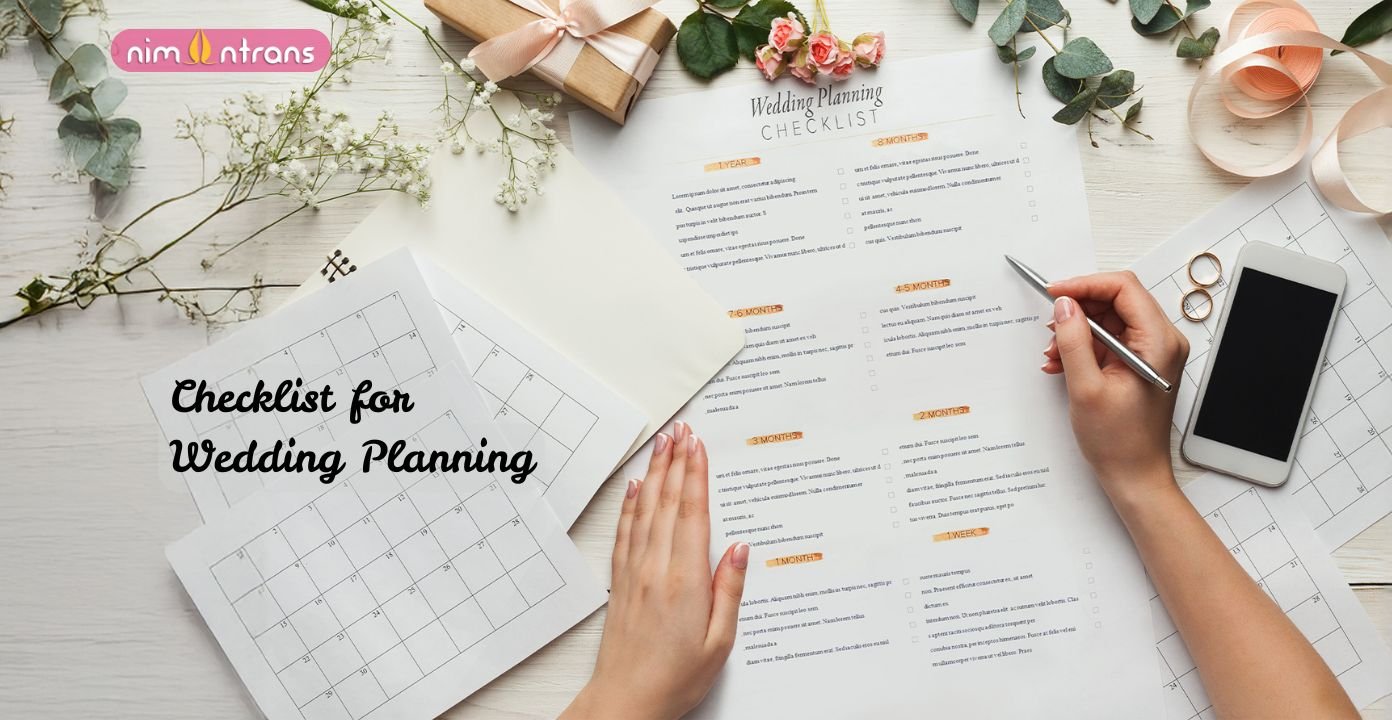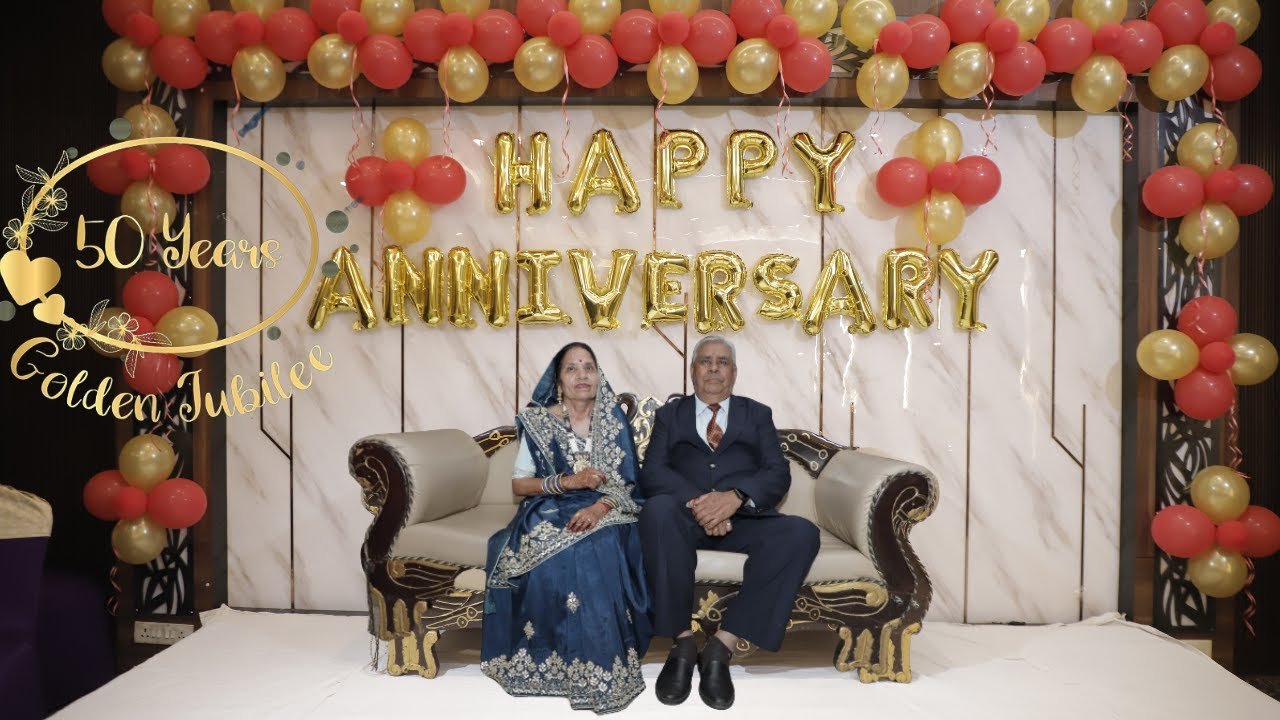Planning a wedding in India is not just about organizing a big celebration—it's about bringing together customs, family traditions, and personal dreams. From cultural rituals to modern-day requirements, Indian weddings involve many moving parts. This checklist covers each stage of wedding planning, helping couples and families stay organized and stress-free.
12–18 Months Before the Wedding
1. Finalize Your Budget Plan
Start by deciding the total budget of your wedding. Divide it into components like venue, food, clothing, decorations and entertainment. A clear plan helps avoid overspending and confusion later. Be sure of the kind of wedding you want to plan – lavish, ethical, ritualistic, fun-filled and more.
2. Choose the Perfect Wedding Date (Across Religions in India)
In India, wedding dates are often chosen with great care, guided by religious customs and family traditions. Each faith has its own way of determining an auspicious or suitable day for marriage:
- Hindu Weddings: Dates are selected based on astrological charts (kundali), planetary positions, and the lunar calendar. A priest or astrologer usually recommends a shubh muhurat for the ceremony.
- Muslim Weddings (Nikah): While Islamic weddings do not traditionally rely on astrology, families often choose dates that avoid inauspicious times like Muharram. Fridays are considered especially blessed (Jumma Mubarak).
- Christian Weddings: Commonly held on weekends or in church calendars aligned with availability. Some may consult clergy to choose a date that doesn't conflict with religious observances or lent.
- Sikh Weddings (Anand Karaj): Dates are chosen based on family convenience and the availability of the Gurudwara. While astrology isn't a major factor, spiritual significance and family traditions may influence the selection.
- Buddhist Weddings: Often planned around full moon days or significant Buddhist festivals. Simplicity and mindfulness guide the planning.
- Interfaith & Civil Weddings: Couples often choose a meaningful or convenient date, sometimes blending traditions from both backgrounds.
Tip: Always consult the spiritual leader, priest, imam, granthi, or clergy of your faith to select a respectful and meaningful wedding date.
3. Plan the Ceremony Essentials
Some universal and faith-specific elements include:
A wedding officiant who can legally and religiously conduct the wedding
- Proper attire – from modest outfits for religious ceremonies to gowns, tuxedos, or ethnic wear
- Decor that matches your theme – minimal, floral, or symbolic
- Ceremony music – traditional hymns, gospel, soft background tracks, or cultural tunes
4. Design Inclusive Invitations
Your wedding invitation should reflect the tone and faith of the celebration:
- Christian/Muslim weddings may include verses or blessings
- Interfaith weddings can use dual languages, universal love quotes, or neutral symbols
- Keep the message warm and respectful for both families
3. Create a Guest List
Prepare a list of all the people you want to invite. Separate the list by family, friends, colleagues, and others. Keep in mind the size of the venue, rituals, and personal preferences while listing guests.
4. Book Your Venue Early
In India, wedding venues fill up quickly—especially during popular wedding seasons. It’s best to book your venue as early as possible to get the date and location you want.
Choose a Venue That Matches Your Ceremony
Every religion has different needs for the wedding space. Here are some common choices:
- Christian Weddings: Churches or chapels.
- Muslim Weddings: Community halls, hotels, or family homes.
- Sikh Weddings: Gurudwaras.
- Hindu Weddings: Temples, gardens, or banquet halls.
- Buddhist Weddings: Peaceful places like gardens or meditation halls.
- Interfaith or Civil Weddings: Neutral venues like hotels or resorts that allow all kinds of rituals.
Keep These Points in Mind:
- Ritual-Friendly: Make sure the venue allows the religious or cultural rituals you plan to perform.
- Enough Space: The place should comfortably fit all your guests.
- Multiple Events: If you're having many functions (like Mehndi, Sangeet, Wedding), try to find a venue with separate areas for each.
- Easy to Reach: Choose a location that’s easy for your guests to travel to.
Tip: Visit the venue before booking. Check if they offer packages for food, decoration, and music, and ask what’s included.
8–12 Months Before the Wedding
5. Plan the Wedding Events
Decide what ceremonies you’ll be hosting—like Roka, Mehndi, Sangeet, Haldi, Wedding, and Reception. Each function has its own charm and requires separate planning.

6. Hire Your Core Vendors
Start looking for key vendors like:
- Wedding planners
- Decorators
- Caterers
- Photographers and videographers
- Makeup artists
- DJs or musicians
Ask for their past work samples, check their experience, and ensure they understand your culture and preferences.
7. Start Shopping for Wedding Attire
Begin with the bride and groom’s outfits for all events. Also, plan for accessories like jewelry, footwear, and coordinated attire for close family members. Traditional Indian jewelry pieces like maang tikka, bangles, and mangalsutra often carry cultural importance.
6–8 Months Before the Wedding
8. Design and Print Wedding Invitations
Choose a design that reflects your wedding style—classic, traditional, or modern. Indian invites often include motifs like elephants, peacocks, lotus flowers, or sacred symbols. Plan the invitation list for each ceremony separately.
9. Book Guest Accommodations
Reserve hotel rooms or guest houses for family and out-of-town guests. Make sure the stay is comfortable, accessible, and near the venue. Some hotels offer package deals for weddings.
10. Plan the Wedding Menu
Food is a highlight of any Indian wedding. Include a mix of traditional dishes and popular favorites to suit diverse tastes. Plan separate menus for each event and consult the caterer about dietary restrictions or religious preferences.
4–5 Months Before the Wedding
11. Finalize Décor and Themes
From floral arrangements to lighting, your décor should reflect the mood of each ceremony. Decide on a color palette and theme—royal, minimalist, vintage, or Bollywood-inspired—and share your vision with the decorator.
12. Confirm Photography and Videography
Choose professionals who can capture not just posed shots, but candid emotions and rituals. Discuss specific moments you want covered like the bridal entry, jaimala, pheras, or first dance.
13. Organize Transport and Logistics
Make arrangements for guest transportation, especially for airport pickups, venue transfers, and the groom’s wedding procession (baraat). Include logistics for vendors and supplies too.
3 Months Before the Wedding
14. Final Outfit Fittings
Try on all your wedding attire to ensure a perfect fit. Complete the look with matching accessories, jewelry, and footwear. Don’t forget outfits for pre-wedding shoots or casual gatherings.
15. Reconfirm All Vendor Details
Connect with all vendors—caterers, photographers, decorators, DJs—to go over schedules, themes, and deliverables. Share a checklist or day-wise plan with them to avoid confusion.
16. Get Legal Paperwork Ready
Prepare your documents for marriage registration:
- Identity and age proof
- Passport-sized photographs
- Marital status affidavit
- Application form for registration
Make an appointment at the registrar’s office if you're planning a court marriage.
2 Months Before the Wedding
17. Coordinate with Your Priest or Officiant
Plan rituals like Jaimala, Kanyadaan, Saptapadi (Seven Vows), or Nikah with your religious guide. Ask what items are needed for each ceremony and assign family members to arrange them.
18. Send Wedding Invitations
Send out the printed or digital invitations to guests. Track RSVPs using spreadsheets, WhatsApp, or wedding websites to avoid last-minute confusion.
19. Explore Wedding Insurance (Optional)
Some couples opt for wedding insurance that covers unexpected cancellations or mishaps. It’s not mandatory but worth considering for destination or large-scale weddings.
1 Month Before the Wedding
20. Finalize Guest Count
Share the final number of guests with your caterers, venue managers, and decorators. This helps in accurate seating, food preparation, and gift planning.
21. Prepare the Event Timeline
Draft a detailed timeline including:
- Vendor arrival times
- Start and end of each function
- Entry and exit of bride/groom
- Music and speeches
Share this with all vendors and key family members.
22. Make All Final Payments
Settle payments with vendors and hotels. Keep records of receipts and confirm any balance dues. Assign a trusted family member to handle transactions during the wedding.
1 Week Before the Wedding
23. Complete Last-Minute Dress Checks
Try on all outfits one final time. Pack accessories and label them by event to avoid confusion. Prepare an emergency kit with safety pins, pain relievers, tissues, and backup makeup.
24. Reconfirm All Bookings
Call vendors and hotel partners to reconfirm dates, times, and services. Double-check your guest accommodation and food orders for accuracy.
25. Focus on Health and Wellbeing
Sleep well, stay hydrated, and take time for a spa or yoga. Mental and physical health is important to enjoy every moment of your celebration.
On the Wedding Day
26. Delegate Responsibilities
Assign tasks to trusted friends and relatives—like managing the welcome desk, handling gifts, or coordinating with vendors. This lets the couple focus on the ceremony.
27. Keep Essentials Handy
Keep all important items like jewelry, documents, makeup kits, and envelopes in one place. Ask a sibling or close friend to be in charge of them.
28. Be Present and Enjoy
Let go of last-minute stress and focus on enjoying your big day. Take in the rituals, the smiles, the blessings, and the joy of starting a new journey together.
What If the Wedding Needs to Be Planned Urgently?
Not every wedding comes with 12–18 months to prepare. Sometimes, situations demand quick decision-making, whether due to family reasons, astrological alignments, or personal choices. Here's what to do when time is limited:
- Focus on the Essentials First
Set a Basic Budget: Decide how much you can spend overall. Don’t stress about perfection—focus on feasibility.
Book the Venue Immediately: Check availability for the earliest possible dates and book one that can accommodate all main functions. At “Nimantrans” you can find Venue hall in locality.
Choose Minimal Yet Meaningful Rituals: If time is short, you can combine certain pre-wedding events like Mehndi & Sangeet or Haldi & Wedding morning.
- Opt for Ready-Made and Instant Services
Wedding Outfits: Go for ready-to-wear options or fast tailoring boutiques.
Decor & Catering: Select vendors offering wedding packages that include food, decoration, and furniture.
Invitations: Use e-invites or WhatsApp invites instead of printed cards to save time.
Hire a Wedding Coordinator or Use a Platform
- A wedding planner with experience in handling urgent weddings can be a lifesaver. Alternatively, platforms like Nimantrans can help you connect with multiple verified vendors quickly in one place.
Keep the Guest List Short
- Focus on close friends and family to reduce logistics. A more intimate wedding allows better planning in less time.
Stay Calm & Be Flexible
- Urgent weddings require you to adapt fast. Not everything will be perfect—and that’s okay. Focus on the joy of the moment, not the stress of the schedule.
Nimantrans helps you find last-minute decorators, photographers, venues, caterers, and more—all trusted and verified. Whether you have 6 months or just 6 days, Connect us through Inquiry form
Don’t panic—Plan smart with Nimantrans!







